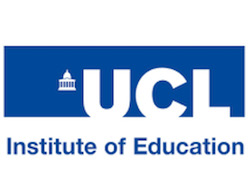

University College London are looking for young people to advise on a research project on adverse childhood experiences (ACEs).
They are looking for young people (up to 22 years old) with experience of ACEs, including anyone ‘living in a household where there is/was substance abuse, alcohol abuse or illegal street drug use or abuse of prescription medications’
If you are within the age range, know somebody who is, and are willing to play a part in this research, we strongly encourage you to contact the organisers, whose details will be included at the end of this piece.
The affect of parental alcohol problems on young people has long been an overlooked area of research and Government policy. Yet studies shows consistently that parental alcoholism, affecting millions in the UK, leads to a much greater risk of personal addiction problems, trouble with police, eating disorders, mental health problems, or suicide.
Your input will help researchers to identify if there are gaps in the evidence, if findings from the research reflect your own experience, and how priorities should be set in relation to future research relating to policy and practice.
For more info, read below:
The project
A research team from the EPPI-Centre at UCL Institute of Education are looking for young people, and young people’s groups, to get involved in a review of the evidence on what helps young people affected by Adverse Childhood Experiences (ACEs). As this project is about looking at the evidence on young people’s views and experiences we want to involve young people in looking at this evidence, and giving us their thoughts on what we find and what is missing.
What are ACEs?
Adverse Childhood Experiences (ACEs) are stressful experiences which harm a child or affect the environment in which they live. This can include things like physical and sexual abuse, and emotional and physical neglect; or growing up in a house where there is domestic violence, a parent or carer in prison, substance abuse or family breakdown.
ACEs have been shown to affect children as they grow and also to have long-term effects on their physical and mental health throughout their life. ACEs can affect all children, but those growng up in disadvantaged neighborhoods have been found to be at more risk of experiencing ACEs than their peers of higher socio-economic status. Disadvantaged children and young people are also more likely to experience multiple ACEs, which can negatively affect them and often their own children in turn.
We know quite a lot from research about when and where ACEs happen and how this affects children as they grow and in their adult lives. But we know less about what helps to promote positive changes and reduce negative impact of ACEs, or the views and experiences of children and young people affected.
The Research Project
We have been asked by the government to look at all the research that has been done in this area to find out what is known about the effectiveness of interventions (services or other support) for children and young people (aged 3-18 years) who have experienced one or more ACE, and about their views and experiences. This work is being funded by the Department of Health and will help us to provide the government with evidence on the options available to help children affected by ACEs.
Involving young people
The research team are particularly keen to work with individuals or groups of young people who have had personal experience of ACEs (see ‘What are ACEs’ heading below). They do not need to have previous experience of involvement in research, as we will provide any necessary training and support. We hope that this will be an opportunity for young people to develop new knowledge and skills and add something to their CV. It’s also a great chance for them to help improve future services and interventions for children and young people who have experienced one or more ACEs.
Young people involved will be given a gift voucher as a thank you for their time and offered payment for travel or other expenses. Young people who agree to be involved will be free to stop their involvement in the project at any point and any information they give will be anonymized and treated with complete confidentiality.
How could young people be involved in the project?
We’d like to involve young people either:
- as young advisors, who work with the research team on different elements of the project and help us produce materials for young people, or
- by meeting groups of young people and talking to them about what we’re learning from the review
In both cases we think it’s important to get young people’s input to find out:
- whether we’re asking the right questions when we’re looking at the evidence
- whether what we’re finding makes sense to young people affected by ACEs – do the findings seem believable? Do you agree with them? What might be missing?
- what, of the things we learn from the review, do you think are most important?
- what do you think the implications of the review might be? Who might be affected? What do you think schools, parents, teachers, the government, or anyone else should do?
The date for the workshop for young people is Thursday 31st May (in half term) at UCL Institute of Education, based in Bloomsbury.
Contact Sarah Lester, Research Officer: Sarah.Lester@ucl.ac.uk
EPPI-Centre l UCL Institute of Education

























































































